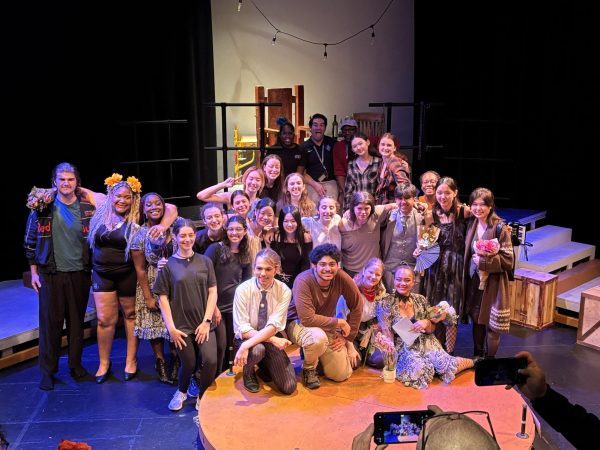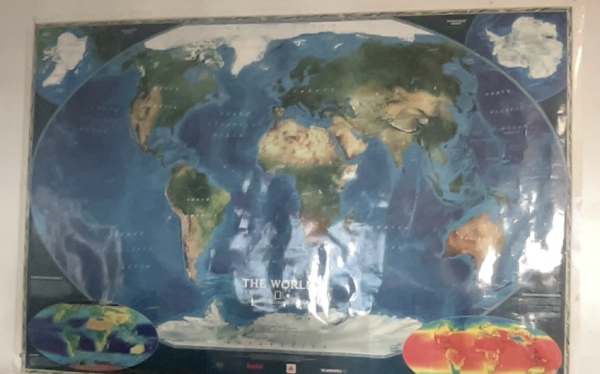The Pursuit of “Home”
In 1937, blood red flags and “Juden Verboten” signs lined the streets of East Prussia. Soldiers in stiff uniforms marched to the beat of drums, saluting the swastika that would soon stain Europe red. As the Nazi parade forged ahead, an 8-year-old Jewish boy, Jerry Lindenstraus, was beaten for refusing to Heil Hitler, to celebrate a country that no longer felt like home. For Jerry and the 500,000 other Jews who called Germany “home,” home became their persecutor, and they the persecuted. Lindenstraus, an outspoken Holocaust survivor, now 94 years old, expressed solemnly, “I feel no love for Germany, we had to leave or get killed.” Unwanted in his homeland, Lindenstraus was forced to flee, to become a “refugee.” The pursuit of “home,” a place of belonging and refuge free from persecution, trailed Jerry Lindenstraus from the grim Jewish Ghetto of Shanghai to, as he put it, “the city of refugees,” New York City. Today, 77 years since the end of the Holocaust, the world finds itself gridlocked over the fate of nearly 27 million refugees (“The Largest Refugee Crises to Know in 2022 – Concern Worldwide US,” 2022). Lidenstraus’s life is a testimony to the enduring legacy of persecution, flight, and hope that continues to taint refugee stories.
The destruction of Germany as Lindenstraus’s “home” began in 1933, when then 4-year-old Jerry witnessed the Nazi’s ascension to power. As Lindenstraus gruffed, “[circumstances changed] like night and day.” Night descended with Nazi policies that targeted Jews’ economic belonging. This targeting, known as “Aryanization,” involved the transfer of Jewish-owned companies to Aryans for bargain prices. Lindenstraus’s father, who proudly owned a department store, was forced to sell his store, his livelihood, for a devalued price. Amidst this troubling period, Lindenstraus’s parents divorced, and he moved to Kuniksberg with his father. As Lindenstraus’s family crumbled, so did Jew’s social belonging. On November 10, 1935, a host of segregationist policies were enacted, such as The Reich Citizenship Law that deemed Jews “state subjects” (“Anti-Jewsish Legislation in Prewar Germany”, n.d.). On the evening of November 9, 1938, Kristallnacht (the infamous night of broken glass) shattered all sense of refuge for Lindenstraus. He recalled, “the next day I came in [to the synagogue, where my school was located] it wasn’t there anymore.” Shortly afterward, Lindenstraus’s father searched for a place to escape German persecution, an extremely difficult endeavor as “there was no place to go…[except for] Shanghai, China” Lindenstruas explained. His father succeeded though and secured tickets to Shanghai for his new wife, cousins, Jerry, and himself.
In July 1939, a couple of months before WWII erupted, the party of ten escaped to Shanghai, joining 18,000 other Jews who sought refuge there (“German and Austrian Jewish Refugees in Shanghai”, n.d.). The relief of escaping Germany was quickly dulled by the death of Lindenstraus’s father six months after arrival, but it extinguished once the Japanese invaded Shanghai after Pearl Harbor. Lindenstraus stated that “the Japanese weren’t anti-semitic, they did not kill us…[but] they made us stateless. And they made a declaration that all stateless refugees had to move into the Ghetto.” Thus, Lindenstraus, his remaining family, and 18,000 refugees were cramped into the Hongkou district, one already inhabited by 100,000 Chinese workers (“German and Austrian Jewish Refugees in Shanghai”, n.d.). Despite the inhumane conditions and rampant diseases, Lindenstraus manufactured a semblance of home thanks to the Shanghai Jewish Youth Association school. Lindenstraus admitted, “I was able to remain a kid while at the school.” His school friend Garry, was his lifeline to childhood. From fist fights to parties, teenage Garry and Lindenstraus were an adventurous pair. To prove his point, Lindenstraus recalled a school outing to a swimming pool outside the Ghetto, where they missed the return truck because they were fooling around. Luckily, as Lindenstraus laughed, “a Japanese military patrol was nice and took us home.”
After four years, liberation arrived in Shanghai, “when the atomic bombs [were dropped] on Japan…we woke up and the Ghetto was open,” Lindenstraus exclaimed. A few days later, the American Navy arrived, and Lindenstraus, now 16, was free to explore Shanghai. A few weeks later, he received a letter with a boat ticket from his mother who’d moved to Bogota, Columbia shortly before Kristallnacht. Lindenstraus recalls feeling apprehensive about leaving his family in Shanghai, but was eventually persuaded to make the journey. With his relatives’ “blood is thicker than water” persuasion echoing in his mind, Lindenstraus said goodbye to China and welcomed the promise of a new home 15,000 miles away in Columbia.
With a smile illuminating his face, Lindenstraus remembers adoring Bogota. He said “I learned how to dance, to live. I learned Spanish. It was the best time I’d ever had.” Jerry Lindenstraus lived freely, drinking in the Columbian vibrancy of the dances, rich spices, and sensual gazes. For seven years, he lived in Bogota with his mother, whom he admits he never truly bonded with due to being separated for so long. Upon her death, Lindenstraus, now 23, with German restitution money in hand, boarded a flight to the United States, searching for “home” in the legendary “land of the free.” After reuniting with his stepmother and her family in Monroe, Louisiana, Lindenstraus eventually settled in New York City. In the “city of refugees,” he was finally home. Amidst diverse crowds, Latin subway music, and friendly Bangladeshi taxi drivers, Lindenstraus, little Jerry belonged. Using his fluency in Spanish, he found a job exporting American automobile parts to Latin America. Then, he married Erica, a Viennese woman who’d immigrated to the US before WWII, and they had a son, Leslie. Yearly, Lindenstraus traveled to San Francisco to see Garry. They threw parties reminiscent of those in the Ghetto, yet their friendship ended with Garry’s death in 2020.
Lindenstraus admits “I still like parades.” Today, he finds refuge in the parades of his chosen home, the ones decorated with laughter. The ones that act as a refuge from hate, not a harborer of it. When asked if he has finally found “home” he immediately replied, “I consider New York, the US home. Not Shanghai. Not Columbia…Not Germany.” Lindenstraus’s refugee story concluded with “home” yet for millions of refugees today the pursuit continues.
Solemei Scamaroni is a senior serving her third year on The Viking Press. An avid competitor in Speech & Debate, Solemei is fascinated with politics...





